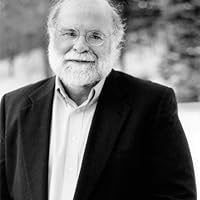to-read
(406)
currently-reading (3)
read (620)
evaluate (71)
didn-t-finish (12)
blinks (3)
pause (2)
next (25)
waiting (6)
requested (0)
fiction (209)
audiobook (134)
currently-reading (3)
read (620)
evaluate (71)
didn-t-finish (12)
blinks (3)
pause (2)
next (25)
waiting (6)
requested (0)
fiction (209)
audiobook (134)
read-to-kids
(112)
family (105)
nonfiction (55)
history (52)
owned (50)
science-fiction (43)
classics (29)
fantasy (24)
funny (24)
rec-the-browser (23)
biography (18)
character-driven (17)
family (105)
nonfiction (55)
history (52)
owned (50)
science-fiction (43)
classics (29)
fantasy (24)
funny (24)
rec-the-browser (23)
biography (18)
character-driven (17)
Chris
is currently reading
Reading for the 3rd time
read in December 2016
 Chris said:
"
I love this epic adventure journey. Lord of the Rings can be dry and slow for some, this has the feel of the magic of that world from the unlikely perspective of rabbits. Because of its unique view, it excels at repeatedly surprising me with so much
...more
"
Chris said:
"
I love this epic adventure journey. Lord of the Rings can be dry and slow for some, this has the feel of the magic of that world from the unlikely perspective of rabbits. Because of its unique view, it excels at repeatedly surprising me with so much
...more
"
Question 7
by
“Money,” my father would say, “is like shit. Pile it up and it stinks. Spread it around and you can grow things.”


“the clock made us into time-keepers, and then time-savers, and now time-servers. In the process, we have learned irreverence toward the sun and the seasons, for in a world made up of seconds and minutes, the authority of nature is superseded. Indeed, as Mumford points out, with the invention of the clock, Eternity ceased to serve as the measure and focus of human events. And thus, though few would have imagined the connection, the inexorable ticking of the clock may have had more to do with the weakening of God’s supremacy than all the treatises produced by the philosophers of the Enlightenment; that is to say, the clock introduced a new form of conversation between man and God, in which God appears to have been the loser. Perhaps Moses should have included another Commandment: Thou shalt not make mechanical representations of time.”
― Amusing Ourselves to Death: Public Discourse in the Age of Show Business
― Amusing Ourselves to Death: Public Discourse in the Age of Show Business

“malcontents praised least. The good critics found”
― Prayer: Experiencing Awe and Intimacy with God
― Prayer: Experiencing Awe and Intimacy with God

“How do we consume as much of your time and conscious attention as possible?” That’s Sean Parker, the first president of Facebook, in a 2017 interview.[1] He was describing the thought process of the people who created Facebook and the other major social media platforms in the 2000s. In chapter 2, I quoted another line from this interview, in which Parker explained the “social-validation feedback loop” by which these companies exploit “a vulnerability in human psychology.” The apps need to “give you a little dopamine hit every once in a while, because someone liked or commented on a photo or a post or whatever. And that’s going to get you to contribute more content, and that’s going to get you . . . more likes and comments.” He said that he, Mark Zuckerberg, Kevin Systrom (cofounder of Instagram), and others “understood this consciously. And we did it anyway.” He also said, “God only knows what it’s doing to our children’s brains.”
― The Anxious Generation: How the Great Rewiring of Childhood Is Causing an Epidemic of Mental Illness
― The Anxious Generation: How the Great Rewiring of Childhood Is Causing an Epidemic of Mental Illness

“Imagination is more important than knowledge. For knowledge is limited to all we now know and understand, while imagination embraces the entire world, and all there ever will be to know and understand. ALBERT EINSTEIN”
― The Skeptical Believer: Telling Stories to Your Inner Atheist
― The Skeptical Believer: Telling Stories to Your Inner Atheist
Chris’s 2025 Year in Books
Take a look at Chris’s Year in Books, including some fun facts about their reading.
More friends…
Favorite Genres
Polls voted on by Chris
Lists liked by Chris


































